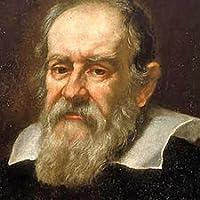
Galileo Galilei
Om författaren
Galileo Galilei was a prominent Italian astronomer, physicist, and mathematician who played a key role in the Scientific Revolution. His work laid the foundation for modern physics and observational astronomy. Galileo is best known for his improvements to the telescope and consequent astronomical observations, including the discovery of the four largest moons of Jupiter, which are now known as the Galilean moons. His advocacy for the Copernican system, which posited that the Earth orbits the Sun, placed him at odds with the Catholic Church, leading to significant personal and professional challenges.
In addition to his astronomical contributions, Galileo made significant strides in the study of motion and mechanics. He formulated the laws of falling bodies and established the principle of inertia, which became instrumental in the development of classical mechanics. His writings, particularly "Dialogue Concerning the Two Chief World Systems," not only advanced scientific thought but also served as a catalyst for the conflict between science and religious doctrine during his time. Galileo's legacy continues to influence various fields of science and philosophy today.